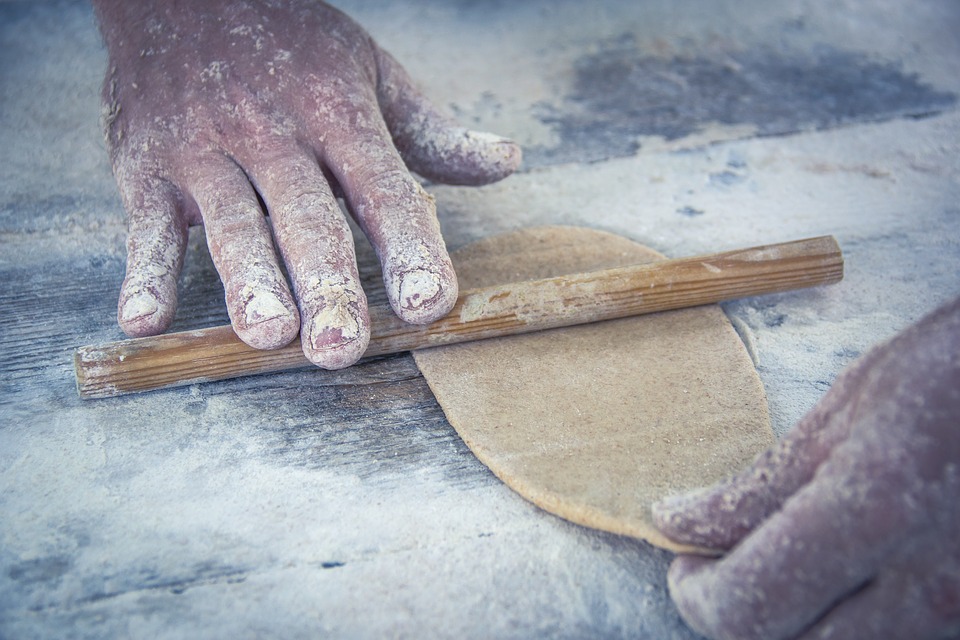
Gluten Sensitivity. Could your chronic health problem be from something as simple and common as eating gluten?
Beyond Celiac and other types of autoimmunity, as many as 10X or more the amount of people are gluten sensitive (up to an estimated 15% of people) which leads to problems with…
- weight gain,
- weight loss,
- bloating,
- many other stomach symptoms,
- headaches,
- other neurological problems,
- many skin problems,
- failure to grow/thrive in kids (some are actual celiacs), and a massive list of other problems that includes…
- a large number of people suffering from mental health problems ranging from depression to anxiety, bipolar disorder, and schizophrenia.
Adding more reasons to why many people should consider avoiding grains, even if you do not have an autoimmune condition.
Before we get to that though, it’s important to point out is that autoimmune problems take many years to develop and are more common than most people believe, so its difficult to know if there is autoimmunity going on inside you or not.
Grains, Beyond Gluten
Grains are not needed in the diet regardless of what the grain manufacturers tell you or get the government to tell us.
The truth is that we have zero requirement for grains. In other words, we will not die if we don’t eat grains.
In fact when they were first widely introduced in the US, they were pulled from the market because of the massive number of serious nutritional deficiencies that they caused.
The processed food companies got together with the government and said they would fortify them by adding a lot of artificial vitamins and minerals to the packaged foods in 1941.
The government said “OK. Now magically grains are good for you!”
Now, there are studies that seem to indicate some health benefits of grains. Generally these are large epidemiological studies that basically rely on people reporting what they ate in the past over a long period of time.
This is problematic for many reasons, including the top 2…
1. People have poor memories of what they actually ate weeks, months, or years ago.
2. People have been told to eat more ‘healthy‘ whole grains for decades. If they adopt this habit, they are more likely to adopt other habits that are told are healthy like exercise. They are also less likely to have unhealthy ones like smoking, etc.

Are grains healthy?
It’s a complicated question. If instead we ask can we live on grains, then the clear answer is yes because most Americans do.
How healthy is the average American though?
More problems with grains…
Grains are high carbohydrate foods which drive blood sugar up, followed by insulin and all the problems that go with that including inflammation, pain, fat gain, diabetes, heart disease, neuro-degenerative diseases, and cancer (as seen with increased cancer risks in diabetics).
I’m not saying that grains are the sole cause of these things, just that they’re very likely to contribute to the problems in so many people.
Grains are primarily used to create highly processed junk food and fast foods.
They are not necessarily ‘healthy‘
Anything that you could get from grains is better gotten through vegetables and other unprocessed foods… and it may really help your health if you do.
A quick summary on grains…
Grains help people gain weight while developing… diabetes, heart disease, autoimmunity (as just talked about above), neuro-degenerative problems, skin problems, and much more.
Anyone with any autoimmunity (not just Celiac), mental health problems, weight problems, type 2 diabetes, neuro-degenerative problems, neurological problems, inflammatory problems, skin problems, or stomach problems should consider giving up 100% of grains for a period of time to see if it helps them.
You can get lab tests that measure immune reactivity to gluten, wheat proteins, and many other foods.
These are not commonly done at your family doctor’s office. You can not measure this with the common skin test that many allergists use which measure a different type of immunity.
These special tests can be expensive and are not covered by insurance companies.
 Protected by Patchstack
Protected by Patchstack
Leave a Reply